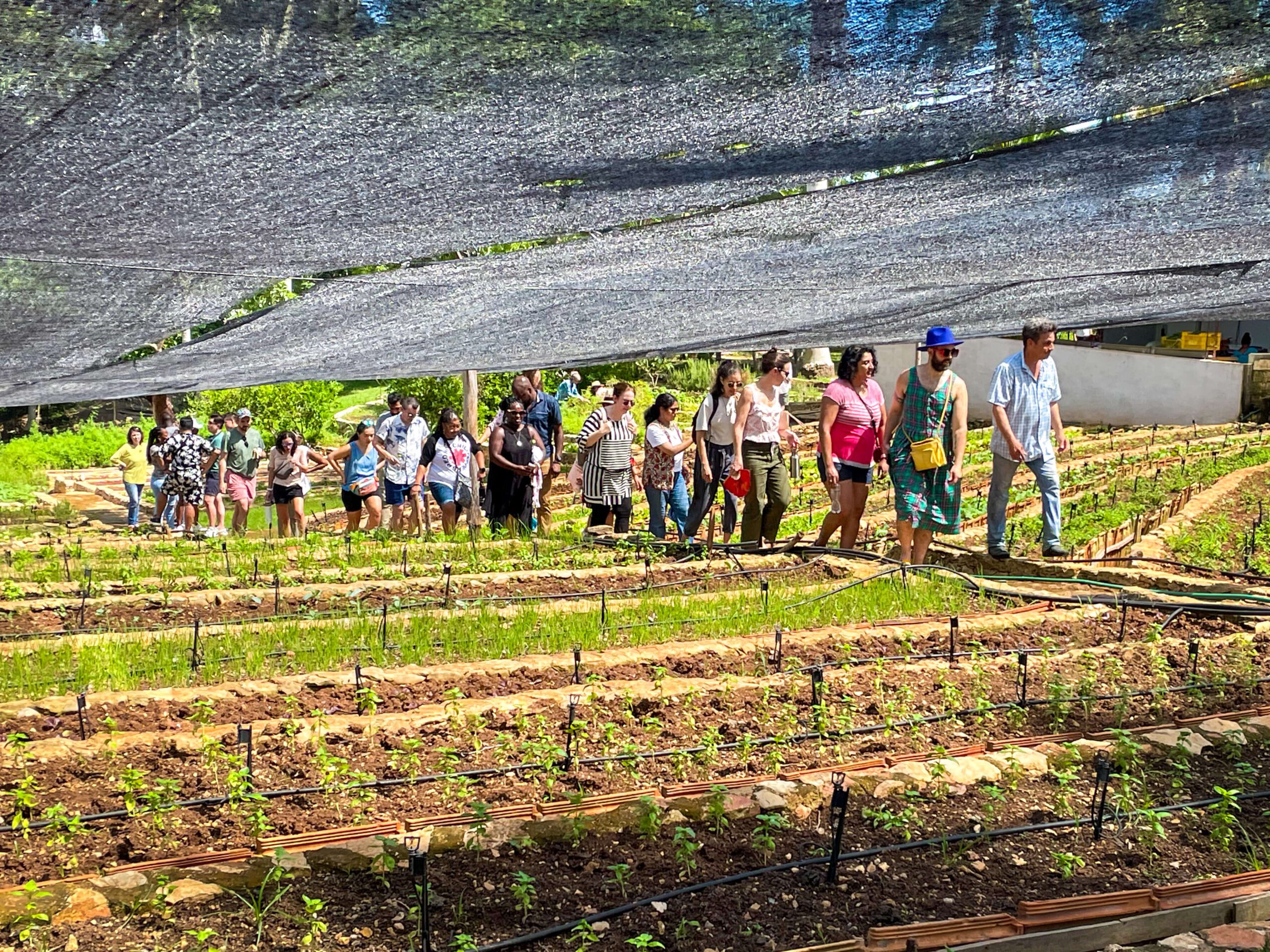For the Love of Land or the Love of Money: Cuba Reflections
The author Monique Brown is a New Orleans, Louisiana resident. She is the Founder and Principal Consultant of Well Placed LLC and a Senior Atlantic Fellow for Health Equity. The views expressed here are her own.
There is a song that I remember learning when I was a child where the first verse went like this:
“This land is your land, this land is my land
From California to the New York island
From the Redwood Forest to the Gulf Stream waters
This land was made for you and me”
The song was written by Woody Guthrie, and it was one of those songs we sang in school along with “The Star-Spangled Banner” and “God Bless America.”
I interpreted the lyrics to mean that there is a collective ownership of American land. Naturally, as I got older, this interpretation was challenged as I learned about American history of tribal lands and the Trail of Tears, the promise of 40 acres, and the idea of the forefathers that private property was the cornerstone of a free society.
There are also the stories of my personal family history with land ownership. My great-grandfather was forced to leave his land in Mississippi and move to New Orleans where he was able to purchase more land, but because he was unable to pay the taxes, the family lost the land upon his death. Much of our wealth in America is based on land ownership and real estate. It has divided us as a nation, fueled segregation, and created a racial wealth gap that will likely remain forever.
I was recently afforded the opportunity to travel to Havana, Cuba, as a Senior Fellow with the Atlantic Fellows for Health Equity. It was my first trip to the country and my preconceived notions were based upon romanticized depictions portrayed in movies and in the media: a tropical paradise where classic cars fill the streets and Cuban music can be heard from anywhere.
Upon my arrival, the humidity greeted me as I exited the airport and loaded my luggage into the 1954 Chevy Bel Air that served as my transportation to our hotel. While on the drive, I took note of the older buildings and the people of Cuba, busy going about their Tuesday, working, and/or coming from school. In the moment, something about Havana felt good but different, but I couldn’t put my finger on what it was just yet. I would have the next three days to figure it out.
Our first presentation was about the history of Havana, presented by historian and urban planner, Miguel Coyula. He shared with us how Cuba came to be what it is today and how the systems within the country keep the country where it is. One of those systems he spoke about was housing. No one rents, everyone owns their home. One fact that completely blew me away, is that the housing is not based on market value but rather the homes are assessed based on size.
As someone who recently graduated with a degree in sustainable real estate development, this fact conflicted with everything I learned. I was taught that property is valued on location, price per square foot, and compared to what the property next door is appraised for. Housing in Cuba is not about accruing wealth but rather it is recognized as a basic human necessity.
The next day we visited Finca Marta, a farm where the concept of sustainability was brought to life. We were treated to a meal sourced directly from the farm and tour of the 20 acres, where leafy greens, coconuts and avocados grew in abundance. Chickens and horses roamed the land, and nearby, bees made the sweetest honey I have ever tasted.
Agronomist and founder of Finca Marta, Dr. Fernando Funes Monzote spoke passionately about this land, as if the land was a part of his family. For him, the land would be as good to him as he was to it. The love the land returned provides food for the people of his homeland. As someone who has spent the past two years studying and learning terms such as land use, site control, ground lease, and one of my favorites, easement, Dr. Monzote’s care for his land struck me in a way that challenged everything I had learned. An easement is a legal agreement that allows someone the right to build a road to cross someone’s land in order to gain access to your own land. It is a legal agreement necessary in the U.S. because land is not to be shared; ownership of land must be defined and documented. Land is not to be loved, but more as a tool to make money and display status.
I learned a new term from Dr. Monzote, “fruit of root,” which in Cuba means that anyone can use the land to farm; no one owns the land, so to speak. The biggest takeaway from my trip to Cuba is rethinking how as an American, with all that I now know, can I, or we as a people, truly love our land.
